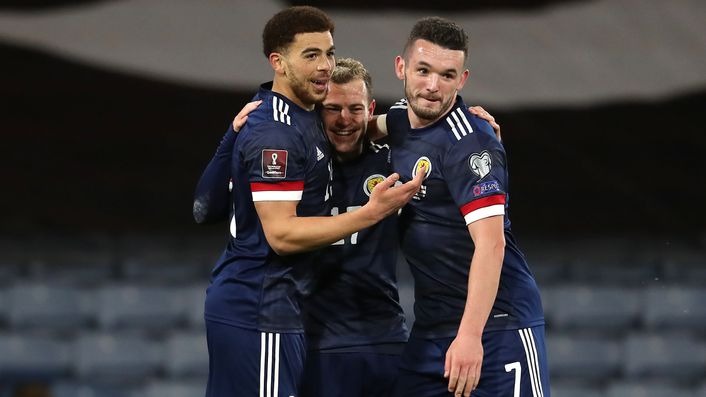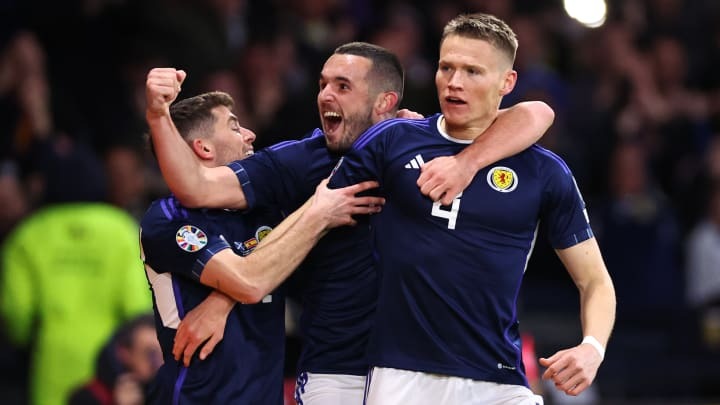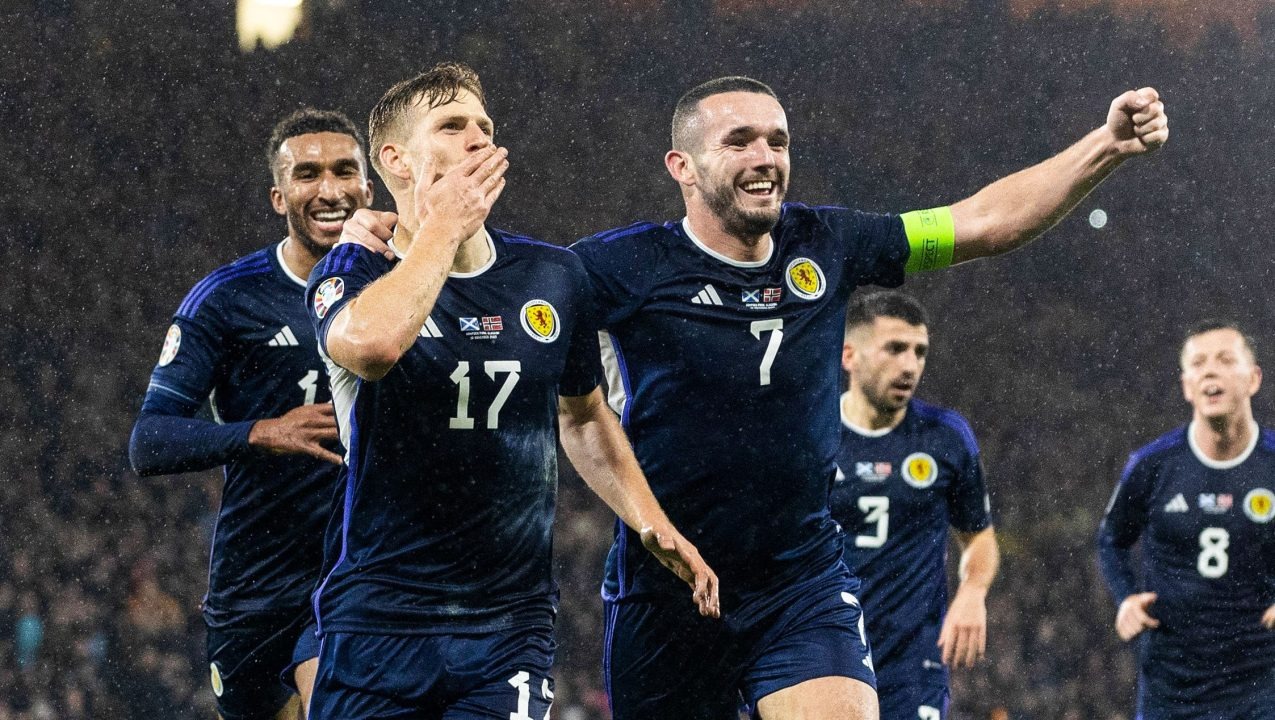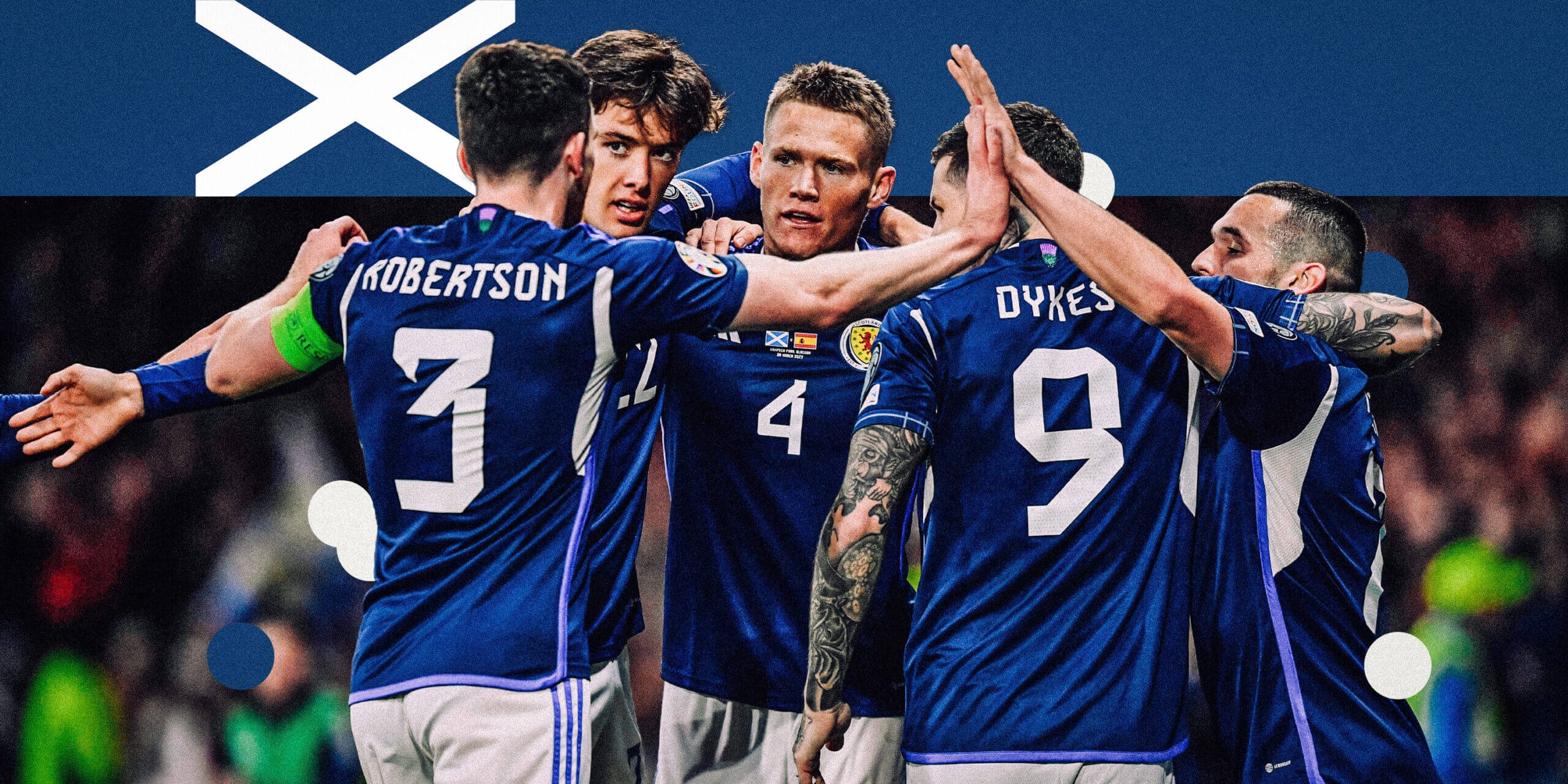Can Scotland go where it has never been before by leaving groups at a major tournament?
During the qualification for a section that included Spain and Norway, hopes for this scenario were high. Nevertheless, Steve Clarke went seven matches without a win (before an arduous victory against Gibraltar); defeats to France, England, the Netherlands and Spain were understandable; Northern Ireland less. For the first time in a while, they looked unprepared.
This blunting of confidence cannot hurt Scotland. Arrogant Scots rarely win. In 1978, the team started at the World Championship and failed. Clarke has built a competent team that should believe that it can land via Hungary and Switzerland, but in terms of collective capacity it lags far behind the brand name of the section, Germany.

Scotland are rarely flamboyant, but they play in a solid, well-honed system. Clarke and his team had to learn from the last euros, where they felt that they had not managed to do themselves justice. The left side is their strength, thanks to Andy Robertson’s looting and Kieran Tierney’s line break. Scott McTominay, who is often sidelined at club level, has Clarke’s implicit confidence. Scotland have an abundance of wealth in the central midfield, which must make up for the lack of a high-profile striker.
The back right is a problem. Aaron Hickey is said to have played there, but a serious hamstring health issue ruled out the Brentford man. Nathan Patterson, Clarke’s plan B, was also forced to stay on the sidelines. This offered Ross McCrorie of Bristol City a chance, although Anthony Ralston of Celtic had moderately more international experience.
The Scottish class of is in a good position to break through its final misery, but it needs to be at its best for this.
Coach
Steve Clarke and Scotland proved to be a marriage in heaven internationally after a series of failures for the nation. Clarke, assistant manager for so long, excelled at West Brom and after at Kilmarnock. Leading Scotland to the successive euros separated it from so many of its predecessors and changed the mood around this team. Clarke is pragmatic and does not like to suffer from fools. During a long and illustrious career at Chelsea, he has teamed up with some of the best players in Europe. after he was José Mourinho’s trusted lieutenant at Stamford Bridge. The Portuguese praised Clarke as a “brilliant football spirit”.

symbol
John McGinn moved from humble startings at Clydebank to captain Aston Villa in the Premier League and became the darling of the tartan army. Perhaps it helps McGinn that he does not have a game connection with one of the two halves of the Old Company, so this football tribe nation can worship him unconditionally. He’s a working-class boy, well done. Mcginn’s goals have become extremely important, and his infectious smile and enthusiasm have an effect on his teammates. McGinn-nicknamed meatball since his youth-says Scotland are “living the dream” with another tournament qualification. So much will depend on his form.

One to watch
It seems awesome to think that Billy Gilmour is only 22 years old, and it seems awesome to think that we are not fully aware of his professional ceiling. Gilmour became a regular in the Premier League at Brighton, but the prevailing feeling is that a lot more will come from the midfield. Gilmour was taken to a hotel room in the north of England with Covid shortly after he played for Scotland at Wembley Stadium in the last euros. He missed the last match against Croatia, which turned out to be a big disappointment for the hosts at Hampden Park. Gilmour travels to Germany with a point to prove. We are talking about a transfer from Brighton because he has proven himself at an elite level after a frustrating time at Chelsea. It is functional, but indispensable in the heart of Steve Clarke’s engine room.

